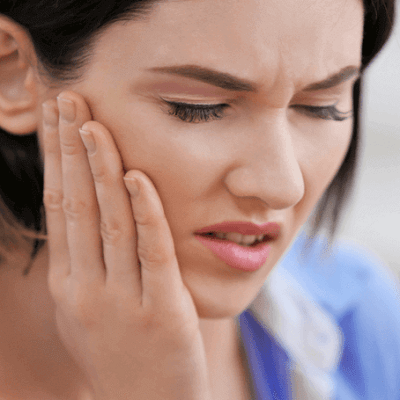If you've ever experienced pressure or throbbing pain around your cheeks, eyes, or forehead, you may have asked yourself, can sinus issues cause facial pain? The answer is yes. Sinus-related conditions are a common cause of Facial Pain discomfort, especially when the sinus cavities become inflamed or blocked. Understanding how these issues develop and present can help you find the right relief and avoid misdiagnosing the symptoms as other health concerns like migraines or dental pain.
Understanding the Sinuses and Facial Pain:
The sinuses are hollow air-filled spaces located in the bones around the nose and eyes. When healthy, they help humidify the air you breathe and improve voice resonance. However, when sinuses become inflamed due to infection, allergies, or other irritants, they can lead to a condition called sinusitis—one of the leading causes of facial pain.
Common ways sinus issues cause facial pain include:
- Pressure buildup due to blocked mucus
- Inflammation irritating nearby nerves
- Pain radiating to the cheeks, nose bridge, and upper teeth
- Facial tenderness, especially when touched
- A feeling of fullness or swelling in the face
This pain often worsens when you bend forward, lie down, or during changes in air pressure.
Key Symptoms to Watch For:
Sinus-related facial pain typically presents with other symptoms that distinguish it from conditions like neuralgia or temporomandibular joint (TMJ) disorders. Recognizing these signs can help you determine whether sinus issues are the root cause of your discomfort.
Look for the following symptoms:
- Nasal congestion or stuffiness
- Thick yellow or green nasal discharge
- Postnasal drip or sore throat
- Cough that worsens at night
- Loss of smell or taste
- Pain in the upper jaw or teeth
- Headaches focused around the sinuses
- Fatigue or general malaise
The location of the pain can vary depending on which sinuses are affected—frontal (forehead), maxillary (cheeks), ethmoid (between the eyes), or sphenoid (deep behind the eyes).
Common Causes of Sinus Pain:
Sinus problems leading to facial pain can be triggered by a variety of factors. Some are short-term and easily treatable, while others may require longer-term management or medical intervention.
Frequent causes of sinus-related facial pain include:
- Acute Sinusitis: Often caused by viral infections and lasts less than 4 weeks
- Chronic Sinusitis: Inflammation that lasts more than 12 weeks, often due to allergies or structural issues
- Nasal polyps: Benign growths that block sinus drainage
- Deviated septum: A crooked nasal partition that restricts airflow and mucus drainage
- Allergic rhinitis: An allergic response that causes nasal swelling
- Upper respiratory infections: Colds and flu can lead to temporary sinus inflammation
Understanding the underlying cause is crucial to effective treatment and lasting relief.
Treatment Options for Sinus-Related Facial Pain:
If your facial pain is caused by sinus issues, a range of treatments—both medical and home-based—can provide significant relief. Your doctor may suggest options depending on the severity and root cause of the problem.
Popular treatment options include:
- Nasal decongestants: Help reduce swelling and improve drainage
- Saline nasal sprays or rinses: Flush out mucus and allergens
- Steam inhalation: Loosens mucus and soothes sinus tissues
- Over-the-counter pain relievers: Reduce pain and inflammation
- Antibiotics: Prescribed if a bacterial infection is confirmed
- Corticosteroid nasal sprays: Reduce chronic inflammation and help shrink polyps
- Allergy medications: Address allergy-triggered sinus problems
In more persistent cases, procedures like balloon sinuplasty or sinus surgery may be considered.
Home Care and Prevention Tips:
In addition to medical treatment, self-care and preventive habits can reduce the frequency and intensity of sinus-related facial pain. Simple daily steps can keep your sinuses clear and your face pain-free.
Effective home strategies include:
- Stay hydrated to keep mucus thin and flowing
- Use a humidifier to maintain moisture in the air
- Avoid exposure to allergens and pollutants
- Wash hands frequently to prevent infections
- Sleep with your head elevated to encourage drainage
- Practice good nasal hygiene with saline rinses
- Avoid smoking or secondhand smoke
Making these habits part of your routine can support sinus health and minimize discomfort.
When to See a Healthcare Provider?
While many sinus issues resolve on their own, persistent or severe Facial Pain Treatment may require professional evaluation. It's especially important to consult a doctor if your symptoms interfere with daily life or worsen despite treatment.
Contact a healthcare provider if you experience:
- Facial pain lasting more than 10 days
- High fever with nasal discharge
- Vision changes or swelling around the eyes
- Frequent sinus infections or chronic congestion
- No improvement with over-the-counter medications
- Signs of dental pain or ear involvement
A proper diagnosis can prevent complications and ensure the right treatment path.
In summary, can sinus issues cause facial pain? Absolutely. Sinus infections, allergies, and anatomical issues can all lead to noticeable discomfort in the face. Understanding the connection between sinus health and facial pain empowers you to seek the right treatment, adopt preventive habits, and improve your overall quality of life.

